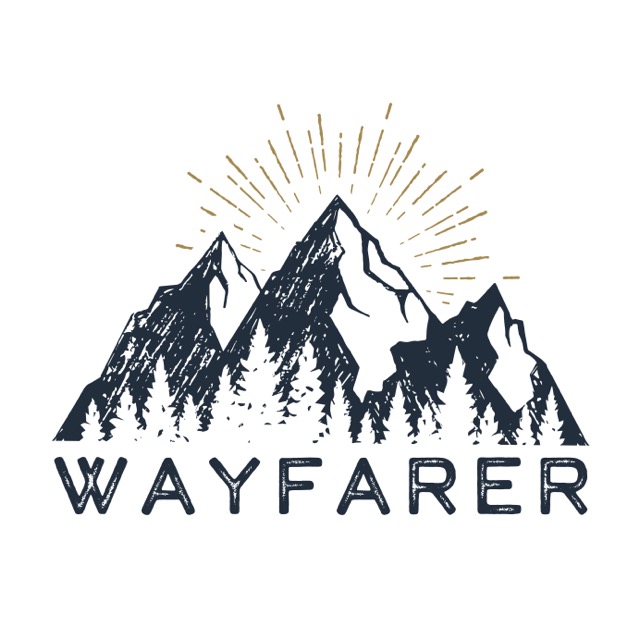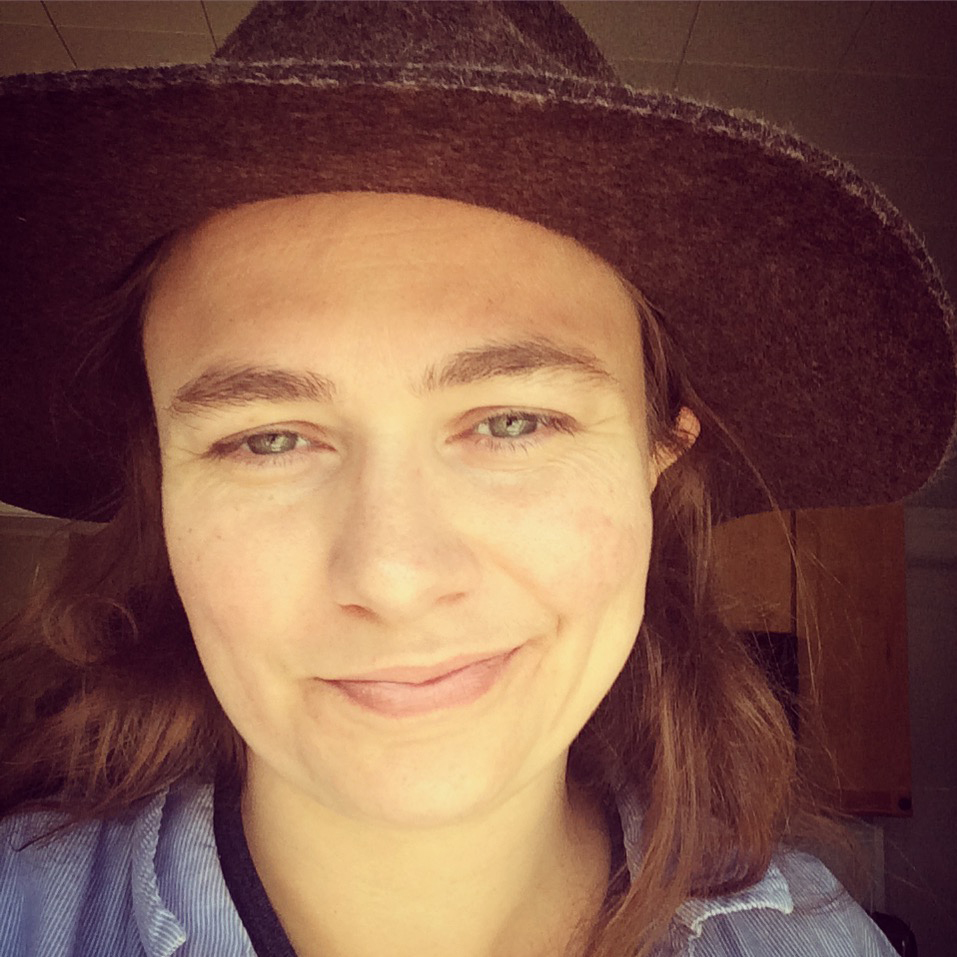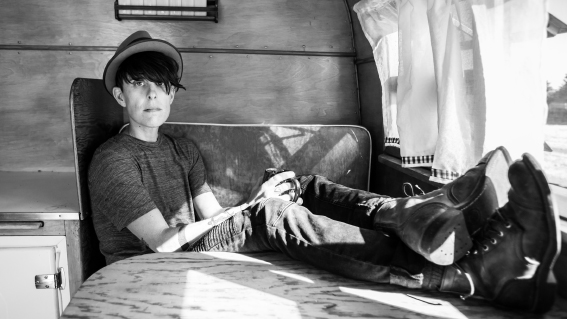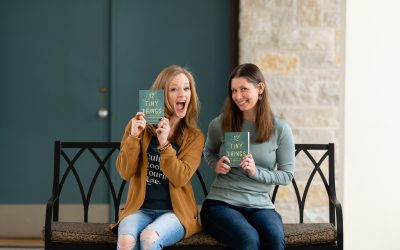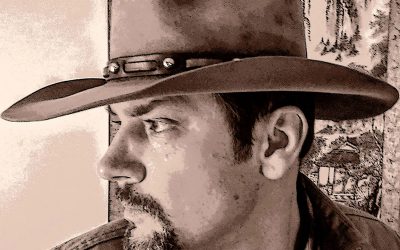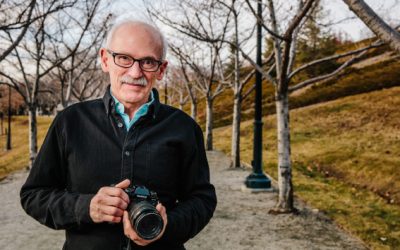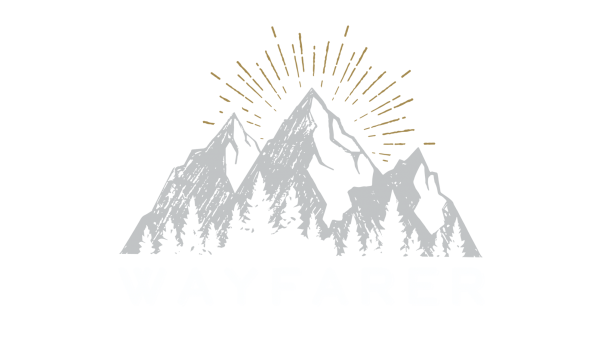The Wayfarer of our Autumn 2019 Issue | Shop Now
All Rights Reserved.
Our
Angel
of
the
Get Through
A Conversation with Andrea Gibson by L.M. Browning
I first saw Andrea Gibson (pronouns: they/them/their) perform during their Hey Galaxy tour at Babefest (a feminist-focused festival) in Provincetown, MA. The headliner was Ani DiFranco. I remember sitting in my seat in the intimate theater waiting for DiFranco to come out when I read that Andrea Gibson would be the opening voice. I remember thinking to myself how odd it was for a poet to be the opening act for a musician. As a poet myself, I don’t say this with judgment but rather with curiosity. When Andrea Gibson took the stage and began reciting their poetry, everything became clear. The poem recited: Orlando (touching on the Orlando shooting, which had happened only months before the evening in M.A.). There is little I can do to convey how powerful this poem is other than to say, in my humble opinion, that night the opening voice was even more captivating than the headliner, so instead I will simply encourage you to look up Gibson on YouTube, watch Orlando—and the rest of their videos—listen to it and then purchase it on iTunes so you can revisit it again. Gibson’s most notable accolades being Four-time Denver Grand Slam Champion and Women of the World Poetry Slam champion 2008. Born in Calais, Maine, Gibson has lived in Boulder Colorado since 1999. Their poetry and activism primarily center on gender norms, politics, social reform, and the struggles LGBTQIA+ people face in today’s society.
Leslie: I’m going to dive right in . . . After seeing your first open-mic in Denver in 2000, you felt inspired to become a spoken word artist. What took place internally while you watched that open mic? What resonated so deeply with you?
Andrea: I attended my first open mic in Boulder, Co, and my first poetry slam a few weeks later in Denver. I had written throughout my life but had such overwhelming stage fright I never imagined I would ever willingly read my poems aloud in front of an audience. Looking back now I realize that much of what drew me to the stage was how afraid I was of it. Fortunately (ha!) for me that fear has hardly subsided in 19 years of performing. My experience of attending poetry events these days is not very different than it was in the beginning. I don’t know if it’s possible to faint from goosebumps, but I feel on the verge of that consistently when listening to spoken word.
Leslie: In Lord of the Butterflies you write, “Your name is a gift, you can return if it doesn’t fit.” In addition to “Andrea,” you’ve also claimed the name “Andrew” and use gender-neutral pronouns, (specifically they/them/theirs). What were some of the mile- marker realizations along your process of defining yourself on the gender spectrum?
Andrea: I was in touch with my gender long before I came to terms with my sexuality, and long before I had language to define myself. As a child I very simply didn’t feel like a boy or a girl, and doubted I would ever grow up to feel like a woman or a man. In 2004 I heard the word “genderqueer” for the first time and immediately thought, “YES!” It wasn’t until quite a few years later though that I started asking my intimate community to use non-binary (they/them/theirs) pronouns for me, and a couple of years later I began using them publicly and writing more consistently about my own gender journey. In regards to my name—I don’t have much personal attachment to one, OR—maybe I just like having many names. Someone could ask 10 of my friends what they call me and there would be 10 different answers—Andrea, Andrew, Dre, Giba, Faye, Gib, Gibby, Sam, Andy, Pangee, Buttercup— yeah, I actually have a friend who calls me Buttercup. 🙂
Leslie: Mental Illness—struggles with anxiety, depression, self-esteem, shame—all these inner-dynamics run like veins throughout your body of work. As one who likewise struggles with depression, PTSD and shame, one the most-resonate lines for me is:
“I think the hardest
people in the world
to forgive are the
people we once were.”
The unabashed authenticity with which you approach the pen unites all of us outliers, letting us know we are not alone. When did you decide that you were going to share those aspects of yourself? Was it a conscious choice to enter into this dialogue so wrought with taboo or were you simply being yourself?
Andrea: People create their safety in different ways. I have a few friends who feel most safe when what they are experiencing internally is something they process internally. I’m the opposite. The more I share about what’s happening in my emotional world, the more the tornado of my nervous system settles down. I don’t doubt that that has been, in many ways, a response to trauma—my historical desire to have a voice that is heard, but it’s one I feel good about honoring regardless. That said, as I’ve grown older, and have learned more and more to be the one who listens to myself, the one who shows up with softness when something deep inside of me starts screaming, I have less of a need to write to be heard as an individual, and more of a desire to show up creatively to a world harmed by silence. As you touch on above– there is so much we have in common, and reminders that we are not alone can be life saving. Those reminders have certainly saved my life many many times.
Leslie: When you recite a poem, your voice reverts with rhythmic, raging, raw rhymes. Each time you perform, you seem to not be reciting the poem but living it. When I gave a TED Talk on my own reality with mental illness, I felt like a streaker on stage—naked—only it was being recorded for posterity. The level of vulnerability was both terrifying and transcendent. Do you find it emotionally draining to give so much of yourself in every book, every performance? How do you refill yourself?
Andrea: I most often find writing and performing energizing. I feel more alive while doing both than I do at almost any other time in my life lately. But there are some poems and some topics that leave me feeling more naked than others. For example, I have chronic Lyme disease, and speaking to that on stage specifically is something that I can’t always do. When I started diving into the why of that I soon recognized that it’s, in large part, because of the tenderness of my audiences. I feel most vulnerable when I can feel people worrying about me and when I speak to my health (what I perceive as) worry sometimes permeates the room. It’s one of the places where I’ve been calling myself to be braver and to show up more courageously to my discomfort.
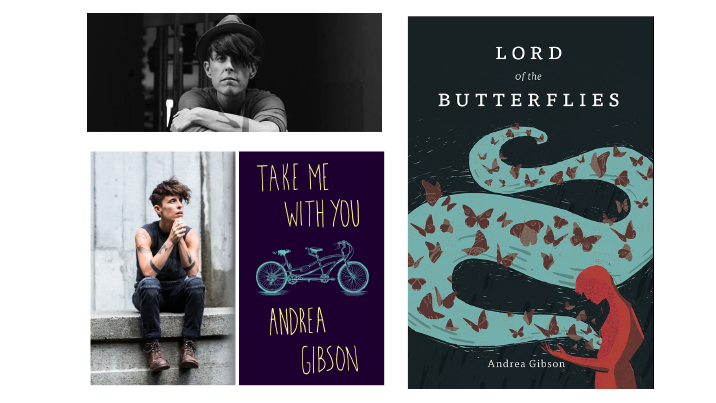
Leslie: In “Angels of the Get-Through,” you write,
…I am already building the museum
For every treasure you unearth
in the rock bottom
Holy vulnerable cliff God mason,
heart heavier than all the bricks
Say this is what the pain made of you
An open open open road An avalanche of feel it all
Don’t ever let anyone tell you, you are too much
Or it has been too long…
Is your creative process an excavation of rock-bottom? …Is it the alchemy of transcending this life’s pains into something of beauty? From what mental place do you usually take up the pen?
Andrea: When I look at my life I don’t see many absolute facts. Nor do I see many absolute truths. My life is what I call it and the more I have called it beautiful the more beautiful it has become. What I have called my biggest wounds have very often been my biggest blessings, because of where they led me, and because of how often they further opened my heart. I don’t want to say any of this flippantly and without respect for how real this hurting world’s walls are in relation to how possible it is to see the light in any given moment. But I have needed, for my own sanity, to find that light in every instant I possibly could, and that is most often where I write from, though it is not the only place. …I’ll say one of the other primary places I speak from is rooted in the belief that even when the truth isn’t hopeful the telling of it is.
Leslie: Have you ever written a poem that you were afraid to share? …have you ever said to yourself, no, this is too intimate; I don’t think I can share this one?
Andrea: Yes. But there was a “yet” on the end of the sentence. “I don’t think I can share this one yet.” And hopefully soon, I will.
Leslie: Finally, the first time I saw you perform was at Babefest in Provincetown. You opened for Ani DiFranco. I remember sitting in the audience awestruck as you performed “Orlando” –brought to tears as you kept going, verse by verse, striking the chords of my soul with each word.
“…People outside pushing bandannas
into bullet wounds.
It’s true, what they say
about the gays being so fashionable.
Their ghosts never go out of style.
Even life, it’s like funeral practice.
Half of us are already dead
to our families before we die.
Half of us on our knees trying
to crawl into the family photo…”
What do you view the role of the poet/artist to be in the current political climate?
Andrea: To inspire an untamable sense of urgency in regards to active boot-laced compassion. To actively imagine a better world and to write it down so that others might imagine it as well. To destroy the myth of our collective powerlessness. To create beauty where there isn’t yet beauty. To remind people they are not alone. To un-war our relationships to each other and ourselves.
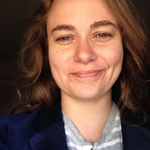
L.M. Browning
Editor-in-chief, The Wayfarer
(L.M.) Leslie M. Browning was raised in the fishing village of Stonington, Connecticut and has traveled extensively across the American landscape. She is a TEDx Talker, photographer, documentary filmmaker, activist, and award-winning author of twelve books. In 2011, she founded Homebound Publications, one of the leading independent publishing houses in the country. Balancing her passion for writing with her love of learning, Leslie has sat on the Board of Directors for the Independent Book Publisher’s Association and is a Fellow with the International League of Conservation Writers. She earned an A.A. in Philosophy from the University of London and in May 2020 will finish a B.A. at Harvard University where she focused on Creative Writing, Psychology, and Digital Media. In 2019, she created the Wild Silence Travel Log where she chronicles her travels and continued exploration of the internal and external landscapes. To follow her trail visit www.lmbrowning.com. Browse her photography at www.wildsilence.org.
Related Articles
12 Tiny Things, Two Open Hearts
Meet 12 Tiny Things authors Heidi Barr & Ellie Roscher, interviewed by Wayfarer Editor Leslie M. Browning | From the Spring 2021 Issue
East Meets Southwest | A Conversation with Poet Frank LaRue Owen
From our Spring 2019 Edition | Visit our store to treat yourself to the full issue in either print or digital format. | Browse the Store› The Wayfarer of our Spring 2019 Issue There are certain path crossings that stay with you as fated moments—certain...
Belonging to the Land: A Conversation with Stephen Trimble by L.M. Browning
From our Spring 2019 Edition | Visit our store to treat yourself to the full issue in either print or digital format. | Browse the Store› The Wayfarer of our Spring 2019 Issue - All Photos courtesy of Stephen Trimble. All Rights Reserved. Stephen Trimble tells...
Stay Up to Date With The Latest News & Updates
Subscribe
We offer our biannual issues in both print and digital editions.
Explore. Replenish. Inspire.
Join Our Newsletter
The Wayfarer posts new content weekly and releases two print issues a year on the first of Autumn and Spring, respectively. Sign up for our free monthly digest of the month’s most inspiring articles across nature, poetry, personal essay, and more as we continue on our mission to foster a community of contemplative voices and provide readers with resources and perspectives that support them in their own journey. Sign Up Below:
Follow Us
Join us in our digital communities.
learn more
Write Us
Get IN touch
(860).574.5847
The Wayfarer Magazine
PO Box 1442, Pawcatuck CT 06379-1442
With Basecamps in:
- Mystic, Connecticut
- Las Vegas, Nevada
- Cambridge, Massachusetts
